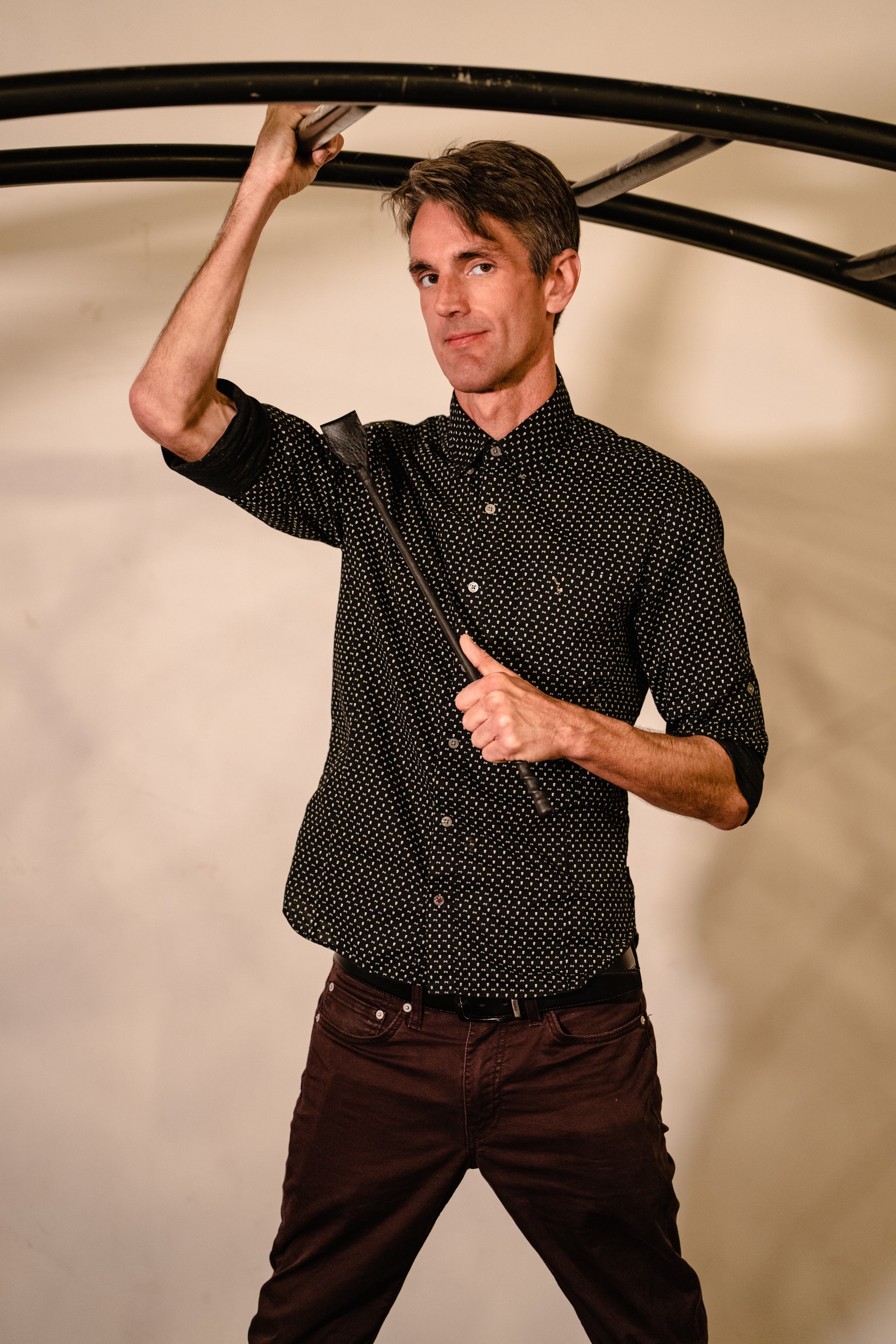We’re excited to introduce you to the always interesting and insightful Emerson Dameron. We hope you’ll enjoy our conversation with Emerson below.
Emerson, appreciate you joining us today. Who is your hero and why? What lessons have you learned from them and how have they influenced your journey?
My hero is the radio host and playwright Joe Frank. He was based out of KCRW in Los Angeles for a time and created a series of programs that mixed film-noir-inspired fantasy, blistering satire, and adult themes. I stumbled into his syndicated show on WNCW, the NPR station near my childhood home, and immediately thought, “That’s the sort of art I want to make.”


Emerson, love having you share your insights with us. Before we ask you more questions, maybe you can take a moment to introduce yourself to our readers who might have missed our earlier conversations?
I’m a writer, satirist, competitive storyteller, obfuscatory performance artist, and host of the radio show and podcast Emerson Dameron’s Medicated Minutes, LA’s number-one avant-garde personal development program. I also do medical copywriting at reasonable rates.

Is there something you think non-creatives will struggle to understand about your journey as a creative? Maybe you can provide some insight – you never know who might benefit from the enlightenment.
For me, spinning personal failure and misery into comedy is the closest I can get to alchemy, which is why I write about my history of depression, addiction, broken relationships, and poor life choices.
Some of my family and friends don’t understand why I would risk embarrassing myself, alienating others, and sacrificing a promising political career to put this stuff out there.
I agree with Howard Stern that “the stuff you least want to talk about the stuff they most want to hear about,” and to do that, you have to give up, once and for all, on being intentionally “cool.”
To quote Rusty Foster, “Writing and making art might be ‘healthy’ ways to express anger, but they are terminally uncool. Nobody cool ever made anything worth a damn. Making art requires you to pull out all the foulest gunk from the drain pipe of your soul and show it to everyone, even though you know they are going to recoil in disgust. It’s basically the most uncool thing you can do.”

Are there any books, videos, essays or other resources that have significantly impacted your management and entrepreneurial thinking and philosophy?
David Ogilvy’s autobiography Confessions of an Advertising Man taught me much of what I believe about how to be a professional and a grown-up, or at least act like one when necessary. My favorite books on the creative process are both about comedy: Impro by Keith Johnstone and The Comic Toolbox: How to Be Funny Even If You’re Not by Jon Vorhaus, which treat improvisational play and joke structure as larger philosophies of life. Anne Lamott’s Bird By Bird is a more general writing primer, but it’s also painfully sharp, funny, and wise. I’d also recommend anyone who writes, which is everyone, memorize Seth Godin’s short essay on “Talker’s Block.”

Contact Info:
- Website: http://levitysaveslives.com/
- Instagram: http://instagram.com/emersondameron
- Linkedin: http://linkedin.com/in/emersondameron
- Twitter: http://twitter.com/emersondameron
- Youtube: https://www.youtube.com/emersondameron
- Other: Emerson Dameron’s Medicated Minutes: http://medicated-minutes.com/share
Image Credits
Two photos are by Boujee Bunbun, as noted in the filenames. The “Kafka t-shirt” live performance pic is Rex McDaniel. All others are Emerson Dameron.


